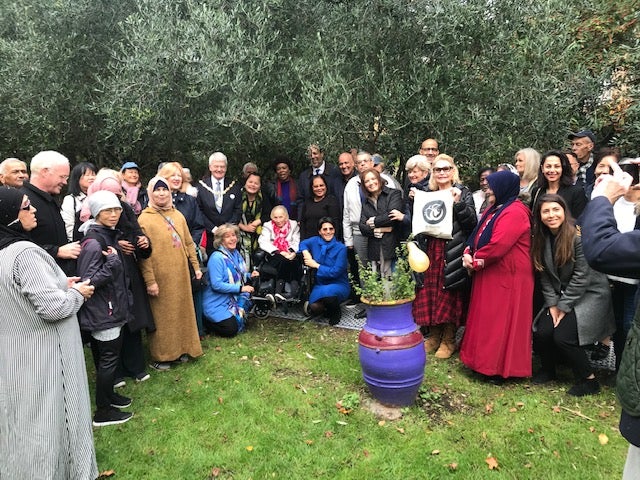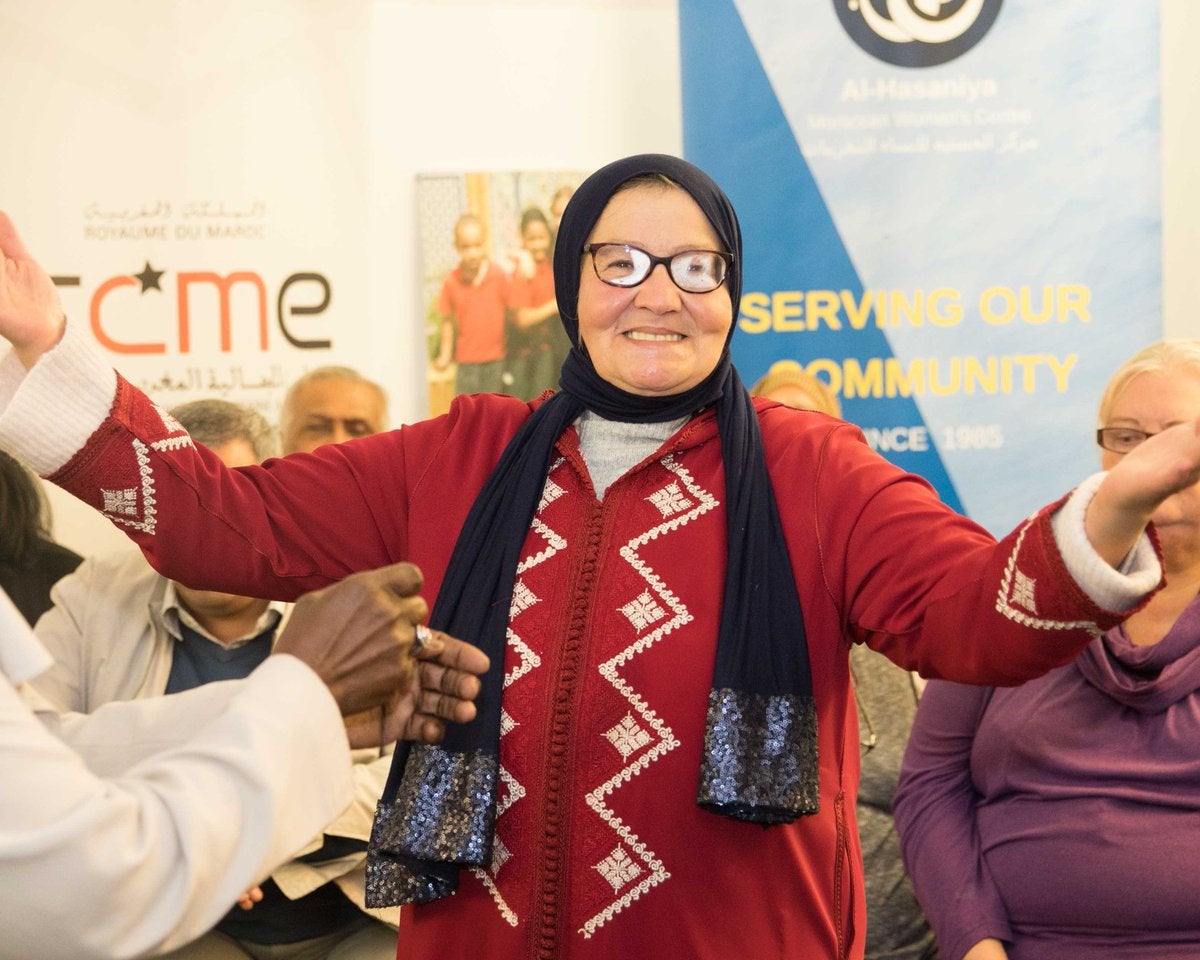Wherever in the world we build a new Collective space, we always aim to make a positive impact on the local area through our community investment programme. First up we identify local charities, social enterprises, small businesses and community groups which could benefit from our help. Then we tailor our partnerships to each one, doing whatever we can to support marginalised groups in the area. This can range from the free use of our spaces for coffee mornings, support group meetings or gym sessions, to helping find work for disadvantaged people, or offering free, short term accommodation to vulnerable women.
One of our partners in this purpose is Al-Hasaniya, an NGO that supports the welfare, education and cultural needs of Moroccan and Arabic speaking women and their families. We recently spoke to one of their domestic violence advocates, Zainab Al-Shariff about their mission.
When and where was Al-Hasaniya Founded?
It was founded in 1985 to provide a culturally sensitive service mainly in the borough of Kensington and Chelsea, as many Moroccan families tended to settle there. When the need started to grow we branched out to other arabic speaking communitites within London.
What services and support do you provide and when do people come to you?
We help mostly vulnerable women become aware of their rights and make informed decisions in terms of immigration, job rights, benefits, housing etc.
This is especially important in the case of vulnerable women who have no recourse to public funds. If a man brings his wife to live here on his visa, he has full financial responsibility for her. That can create financial abuse where the wife is fully dependent on him for money; he gets the child benefits, universal credit and has all the control. She may need to leave him but cannot as there is no financial provision for her so she can't access a refuge. That's where we come in to help do the paperwork and get her a place to stay.
We support 95% women but also get calls from men. There is huge stigma against men who are victims of domestic abuse, so it is a big thing for them to come forward.
What type of events and activities do you organise?
The mental health project runs quite a few activities for the women, like coffee mornings, sewing class, a trip to Brighton once a year for fish an chips. We also take part in Silver Sunday, celebrating older people in the community. We get together in the Moroccan garden near the centre, cook some nice Arabic food, play music, invite the mayor. It’s a great multicultural event, open to anyone over 50 to come along and chat, mingle with their community and keep loneliness at bay. We might have to scale down this year’s cause of COVID but we’re still hoping to do it in October.

How did the partnership with The Collective come about?
We were introduced to you through a third party based on what we both do and our shared vision in wanting to support vulnerable people. You guys had the accommodation, we had the vulnerable women in need of a place to stay, the partnership made sense.
Can you tell us how The Collective has helped your community of women so far?
You guys are like a lifeline. Women come to us with no friends and family in this country and no recourse to public funds and you provide them with a place to stay for a few nights. They can close the door and feel safe while we can do the paperwork to get them into a refuge. It could be the first really good night’s sleep they’ve had in years.
Everything you do, from the room and facilities to staff on reception smiling at these women, it all makes them feel welcome and wanted, and goes towards rebuilding their lives.
What is the biggest challenge your community is facing at the moment?
There are so many different needs (some women have children, need a solicitor, or help understand police and court procedures, benefits, etc) and all this needs funding. Although we are well known in the area, our hard work isn’t reflected in the funding compared to some of the 'big fish' charities.
During COVID our requests came in from all over the UK. As a service we don't turn anyone anyway. Even if we can't find you housing if you live in Scotland for example, we will still give you advice and signpost you to your nearest service.
What are some of the less common signs of abuse?
Abuse can affect everyone, every class, ethnic background, gender and age. It includes physical, sexual, financial and psychological abuse, as well as controlling and coercive behaviour. Every kind can be challenging to recognise. An abuser may hit their victim in a place where nobody can see, or make them wear makeup. There may be controlling behaviours disguised as jealousy. It could be harassment from an ex which can be very hard to prove. People may also keep these things hidden because of feelings of shame, guilt or wanting to maintain the family structure.
What should we do if we are worried about someone we know?
If you are worried about someone, try and listen, be open and non judgmental. Try and avoid telling them what to do, this recreates the control they are already facing in the abuse. The worst question is why don’t you just leave? There are a myriad of reasons why someone may not leave.
Some of the biggest challenges we face are the cultural or religious misconceptions about being a dutiful wife. Try and challenge those misconceptions in a healthy way. As questions like... How long can you be patient for? What about the impact on your children? What about you? You deserve to be loved, respected etc. Talking about healthy relationships is really helpful.
If people want to get involved with Al-Hasaniya, how can they help?
They can keep an eye on our twitter for news and events; and if they want to donate or volunteer they should head to our website here.
